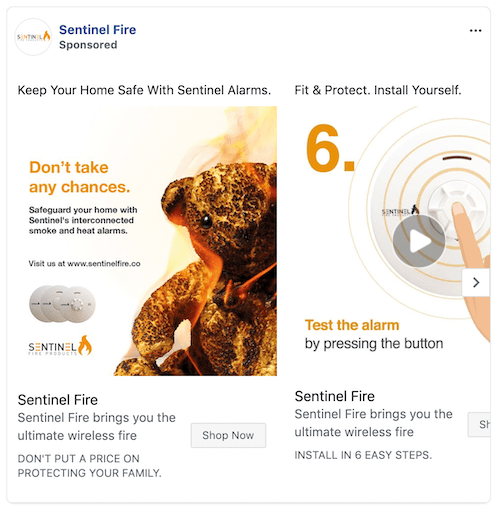An introduction to paid search marketing
It’s no secret that social media and SEO are powerhouses when it comes to content marketing, lead generation and overall brand awareness. Brands are continuing to push the boundaries of their budget when it comes to maximising their organic success but are they missing opportunities when it comes to paid social and PPC?
What is Paid Social?
Across the wide variety of social networks, each platform has its own advertising platform that can be utilised to push content to users who do and don’t follow your brand via these channels. These platforms work by allowing you to target users by demographics, interests, location and more.
Facebook recently reported that its platform has 2.32 billion daily active users, with 2 billion likes occurring on Instagram every day. As such, it's a very cost-effective way to increase your reach to a wide variety of potential customers, particularly if you’re a business within e-commerce and you deliver products globally. These platforms are great for generating brand engagement locally as well.

According to Adobe, Social media is the most relevant advertising channel for 50% of Gen Z and 42% of millennials. PriceWaterhouseCoopers (PwC) reports that 37% of consumers find purchase inspiration through Social Media.
It’s reported that 80% of B2B leads on social media come from LinkedIn, whereas the other platforms, Facebook, Instagram and Twitter really pioneer the B2C leads.
What’s PPC?
Often referred to by their platform names, Google Ads or Microsoft Advertising (formerly Bing), Pay-per-click (PPC) is where advertisers pay for their advertisement’s clicks or impressions. These ads can appear either above or below the organic search results, whereas shopping ads may appear for a product-based search or display ads across a vast network of websites who belong to the Google Display Network (GDN).
Users are targeted based on keywords as well as location or language. These will then correspond to a user’s search query depending on the type of keyword match, the different match types are broad, broad match modified, phrase and exact.

Google is the most popular search engine, receiving 3.5 billion search queries a day. Advertisers recognise an opportunity here, as paid ads on Google get 65% of the clicks from users who are ready to buy. Furthermore, the display network generates 180 million impressions each month, which is great for brand awareness and remarketing.
So what’s better, PPC or Paid Social?
Every advertiser has one goal and that’s to generate good ROAS (Return on ad spend). Both channels offer different opportunities when it comes to getting your message in front of potential customers, which ultimately comes down to knowing what your returns look like.
Paid social media offers the ability to get engagement across different metrics, such as sharing and commenting on brand content. A host of user data can be used to target by interests and demographics that have been added by users organically through their profile, likes and follows. As such, lead generation can be high on campaigns due to lead gen forms that can be auto-filled with user data to speed up the form filling process.
PPC offers the ability to capture users in the different stages of the funnel. People who show buyer intent with their searches, such as “buy oak table Kent”, are more likely to lead to a conversion. Utilising bid adjustments or higher max CPC on these bottom-of-funnel terms will put your brand front and centre and generate more revenue.
All platforms offer some form of remarketing, which is both highly useful and thoroughly recommended. It allows you to target people who have previously engaged with your brand whether that’s via your website, socially, email or more and results in further conversions from users who normally wouldn’t have returned to your brand.
We highly recommend speaking with a PPC or social media expert whenever setting up your campaigns since having the wrong optimisation and setup is the quickest route to over-spending your budget with very little return.
For more PPC or paid social advice and to find out how to optimise your campaigns, get in touch.
.png?width=721&height=1083&name=Frame%20158%20(1).png)